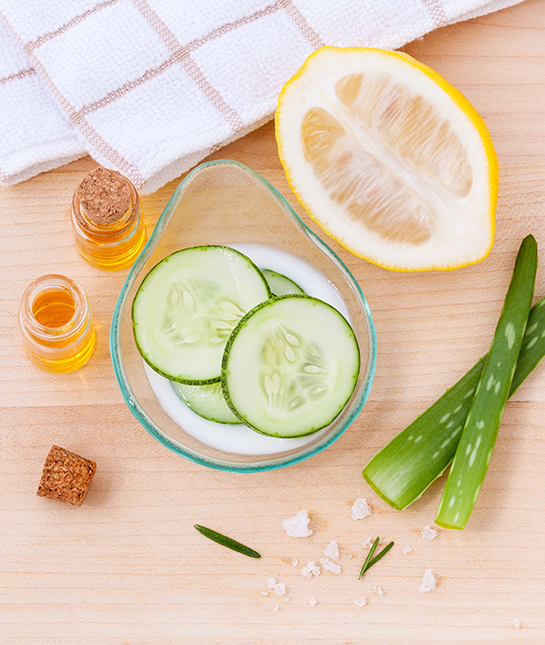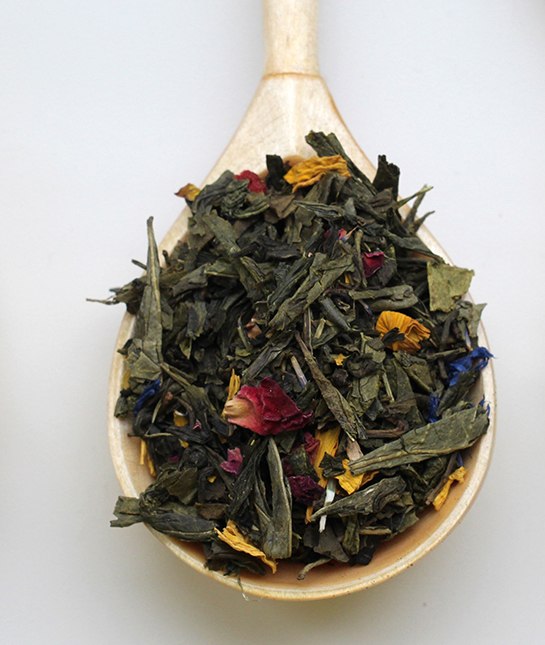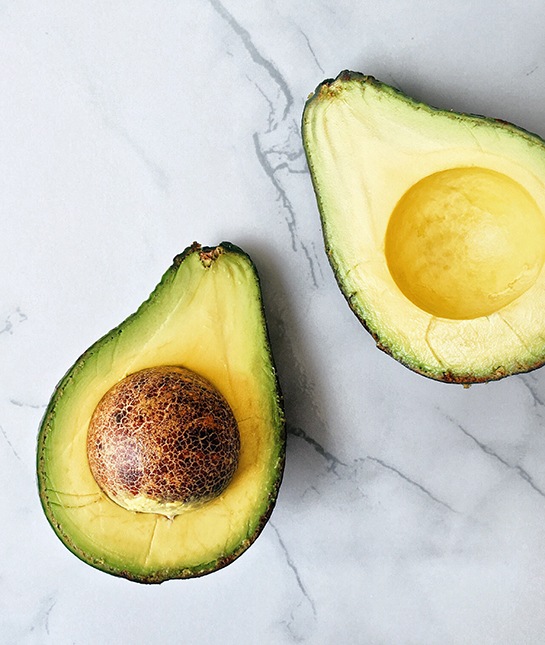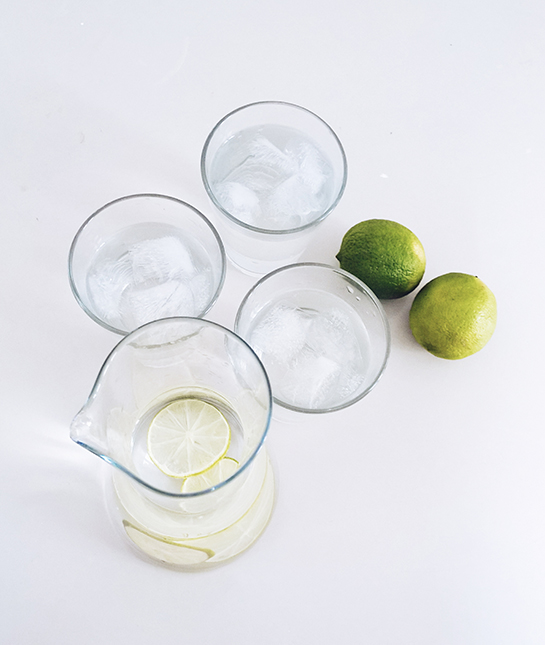Getting Skintimate

Other than the daily cleansing, moisturizing and the occasional exfoliation, most of our skincare routines likely seem pretty basic—which begs the million dollar question in the quest for vibrant skin: Is there more we could, or should, be doing? In a word, yes. But it's not as complicated as you may think. We interviewed Dr. Trevor Cates, also known by her Park City, Utah, patients as the "Spa Doctor." She's a naturopathic physician who focuses on anti-aging, hormone balance and glowing skin, and has also developed her own skincare line. Follow her tips and start showing your skin some extra love and you'll be rewarded with beautiful results.
Kick the Chemicals

Avoiding chemical-based skincare products is your first step towards loving your skin more, and in turn, it will benefit your entire body. "What you put on your body can penetrate your skin and end up in your blood stream, so it's time to take a closer look at ingredient labels," says Dr. Cates. For example, did you know that even a product that contains "fragrance" puts your hormones at risk? "Fragrance contains a number of endocrine disrupting chemicals, a class of chemicals that, in studies, are associated with conditions such as thyroid problems, infertility, early puberty, obesity, diabetes and certain types of cancer, such as prostate and breast," says Dr. Cates. Other ingredients to sidestep in addition to fragrance include formaldehyde-releasers, oxybenzone, DEA and parabens, notes Dr. Cates.
The Skin Trifecta

Now that you know the ingredients you need to ditch, here are a few to include that have great skin benefits: green tea extract, CoQ10 and vitamin C. If you're using a natural product and aren't seeing results, it's likely the manufacturers have skimped on these three ingredients. "Manufacturers may use a very weak version of isolated nutrients," says Dr. Cates. "This will prevent the products from doing what research shows natural ingredients can do. Unfortunately, this is one of the reasons we're often hearing that natural skincare products don't work."
Acidic vs. Alkaline

In addition to ingredients, it's important to also pay attention to a skincare product's pH level. Hydrated, healthy skin has a natural pH of about 4 to 4.5, explains Dr. Cates, which helps sustain the one trillion bacteria living on your skin that protect it from inflammation, acne and premature aging. Therefore, when you use products that have a high pH (typically over 5.5), it can dry the skin out and make it more prone to breakouts, premature aging and infections, she says. Furthermore, a cleanser that's sudsy or foamy is likely too alkaline and even water has a pH of 7, which is too alkaline for the skin, says Dr. Cates. Look for products that have a pH level between 4.6 and 5.
An Essential Oil

Adding sea buckthorn fruit oil, both to your skincare routine and to your diet, has wonderful skin-boosting power, says Dr. Cates. It's the only plant known to contain omegas 3, 6, 9 and (the very rare) 7. Furthermore, sea buckthorn fruit contains more vitamin C than 10 (yes, 10) oranges, she notes. In addition to using skincare products that contain it, take a daily supplement to nourish your skin from the inside out.
A+ for Avocados

As Dr. Cates says, "An avocado a day may keep the dermatologist away." Besides containing monounsaturated fats, which are great for your skin, avocados are high in antioxidants such as polyphenols and vitamin E, which help fight oxidative damage that speeds up skin aging, says Dr. Cates. And putting avocado directly on your skin acts as a fantastic moisturizer as well (just puree and leave on for 15 to 20 minutes).
Eat Your Fats

In addition to avocado, wild salmon is another food you'll want to be incorporating regularly into your diet, due to its high omega-3 fatty acid content. "Because the root of many skin problems is inflammation, [omega-3 fatty acid] is one of the most essential nutrients for skin health," says Dr. Cates. "And salmon's pink color indicates that it contains the antioxidant astaxanthin, which studies show has sun-protective effects and can counteract UVA-induced skin changes."
Hydrate First Thing

While Dr. Cates says there's no "magic number" as far as how much water should be consumed for skin health, her suggestion is to aim for eight glasses of filtered water daily. She also recommends starting each morning with one full glass of water (prior to having coffee or any other beverages) to rehydrate the body and drinking at least one more full glass during a workout. Once you account for those two, stagger six more glasses throughout the day.
Nature's Sunscreen

Chlorophyll—a plentiful ingredient in freshwater algae—acts as a natural sunscreen for the skin, especially in protecting it against UV radiation. Therefore, using chlorella extract (also known as green algae extract) is a fantastic way to shield your skin and also keep it looking youthful. "Chlorella keeps the skin supple by inhibiting the enzymes that break down collagen and elastin," Dr.Cates explains. "It contains 19 to 22 essential and non-essential amino acids, and its beneficial properties help purify and energize the skin."




